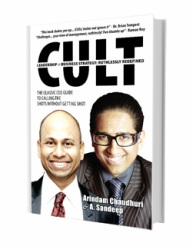No doubt, the celebrations are too early, as the real test is yet to come; and that is when it goes through the Lok Sabha. Going by the precedence set in the Rajya Sabha, things do not look that simple. From the very beginning the Congress, along with the BJP and the Left , have been in support of the bill; whereas most other political parties have been opposing the bill in its current form. But then, it is also important to understand the contents of the bill that’s making so many political parties oppose the same. It is not just the Rashtriya Samajwadi Party (RJD) or the Samjwadi Party (SP) which has been most visible, the parties representing the backward and the oppressed classes have also been opposing the bill in its current form. In fact, the bill proposes to provide reservation to women at all levels of the legislature, starting from the Lok Sabha to the state to the local legislatures. It proposes to reserve one-third of the total number of seats for women in the central, state and local governments. The political parties who have been backing the bill argue that this bill is going to pave way for gender equality, would fight abuse and discrimination and would work for the overall cause of women who have been historically deprived in India. On the face of it, the arguments sound benevolent and profound as there is no doubt in the fact that women in our society have been pushed to the margins on all socioeconomic counts!
Then what is the opposition’s problem? Lalu Prasad Yadav’s contention has been that such blanket reservation would only invite the elite to exploit the reservation – the poor and marginalized would remain unrepresented. According to him, the reservation is justified only when there is a reservation within the reservation for Dalits, backward classes, Muslims and other religious minorities. Similarly, Mulayam Singh’s argument is that as such 22.5% of the seats in the Parliament are booked for Scheduled Castes and Scheduled Tribes. Now, with another 33.3 % reserved for women, more than 50% of the seats would come under the reserved category! It is not fair for the other stakeholders of the economy to have less than 50% representation left for them. As I said earlier, from a logical standpoint, both these arguments have definite merits, and their opposition to the bill in its current form does make adequate sense, though at the same time, their actions in the Rajya Sabha do not make any sense. Read More....
For More IIPM Info, Visit below mentioned IIPM articles.
IIPM B-School Detail
IIPM makes business education truly global
IIPM’s Management Consulting Arm - Planman Consulting
Arindam Chaudhuri (IIPM Dean) – ‘Every human being is a diamond’
Arindam Chaudhuri – Everything is not in our hands
Planman Technologies – IT Solutions at your finger tips
Planman Consulting
Arindam Chaudhuri's Portfolio - he is at his candid best by Society Magazine
IIPM ranked No 1 B-School in India
domain-b.com : IIPM ranked ahead of IIMs
IIPM: Management Education India
Prof. Rajita Chaudhuri's Website
------------------------------------------------------------------------------------------------------------------

 RSS Feed
RSS Feed